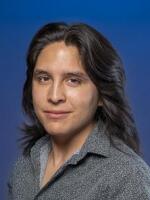May 25th, 2025 marks five years since Minneapolis police killed George Floyd — sparking protests across the country, including here in Las Vegas.
In the years since, what has actually changed? Has the Black experience in Southern Nevada improved? Have police practices evolved?
Stretch Sanders, known as “Minister Stretch,” was in the thick of it five years ago as an anti-police brutality activist and organizer.
Sanders said the George Floyd and Black Lives Matter movement improved communication with government officials and organizations.
“I remember years ago I couldn't pay to get elected officials to meet with me,” Sanders said, “but now, they'll call me to set up meetings and things like that, and to figure out ways that we can grow and help better our community.”
Asked if the movement improved relations between police and the black community, Sanders said things have changed, adding, “We have created a climate now of more accountability and transparency. Obviously there are still cases of abuse, but it is a little better.”
Nevada Public Radio reached out to the Las Vegas Metropolitan Police Department, North Las Vegas Police Department, and Henderson Police Department. None were available or chose to participate.
Policy changes do offer some insight into how police departments are addressing use of force.
Just 10 days before the death of George Floyd, on May 15, 2020, the Las Vegas Metropolitan Police Department overhauled its use-of-force policy, requiring officers to intervene in cases of inappropriate conduct and mandating de-escalation training to reduce the likelihood of severe force.
Still, Sanders would like to see more legislation, such as a mandatory prison sentence when an officer misuses power, or removing paid leave for an officer during a pending investigation.
Additionally, Sanders said, the movement sparked action at the time — but not enough follow-through.
“I think we got so caught up in protesting that we stopped going to the city hall meetings, to Carson City. Protesting is great, but if you don't follow up, then it's just an event,” Sanders said.
Still, according to Tyler Parry, associate professor of African American studies at UNLV, George Floyd’s murder brought a watershed moment for the anti-police brutality movement.
“The George Floyd [movement] introduced not just to the United States, but to the world, the ways in which activists can coordinate their efforts,” Parry said.
“With [the police beating of] Rodney King [in 1991], that was one of the first viral moments,” he continued. “But even then, there were about 10 cities or so that had some type of protest, Las Vegas included. After George Floyd though, it was basically everywhere.”
Although there has been change, Parry said, people are still afraid of coming into contact with the police.
“A lot of my younger students, some black students, still have a perception that some form of law enforcement is necessary,” he said. “But there still is a perception that you get nervous around police, because you're not entirely sure how an officer is going to react, no matter what the [police] code of conduct expresses.”
In the meantime, Stretch Sanders is focused on keeping the movement alive and pushing forward.
“I'm back in school, getting a degree in history, because I want to be a history teacher,” he said. “I want to go into classrooms and bring that spirit of revolutionary love and teach kids about past movements. I want to birth a new generation of activists.”
Guests: Tyler Parry, associate professor of African American and African diaspora studies, UNLV; Minister Vance "Stretch" Sanders, former president, New Era Las Vegas





